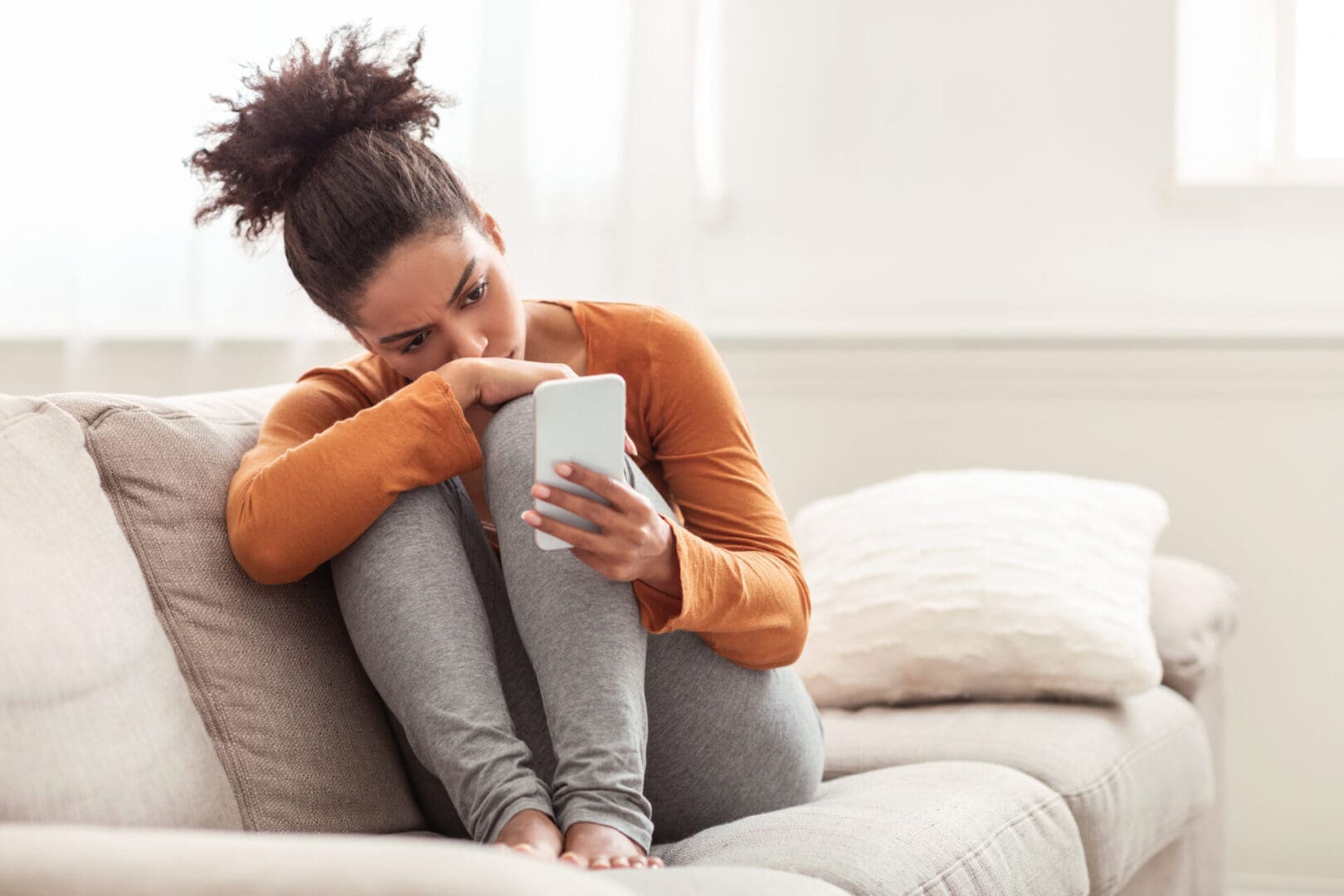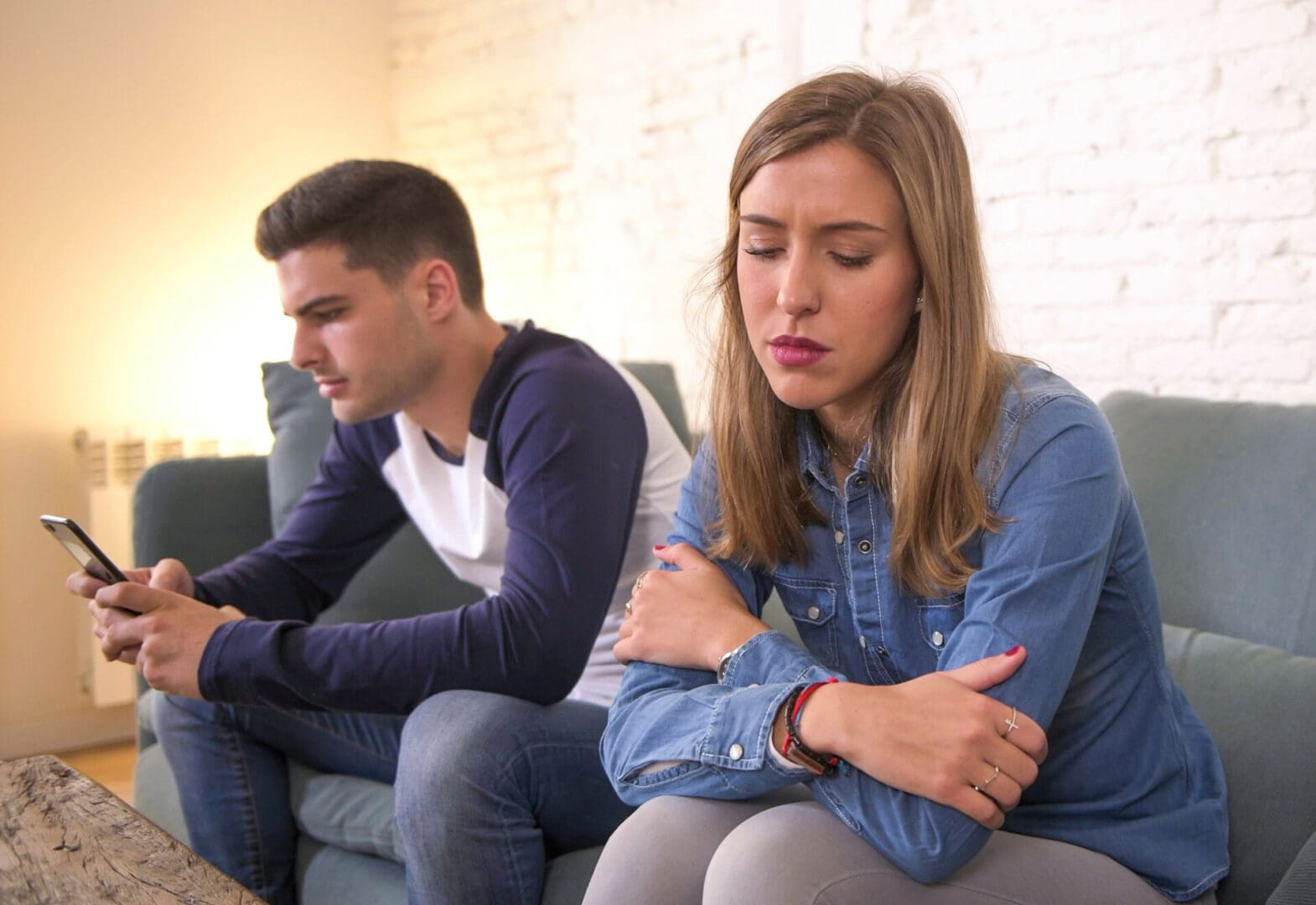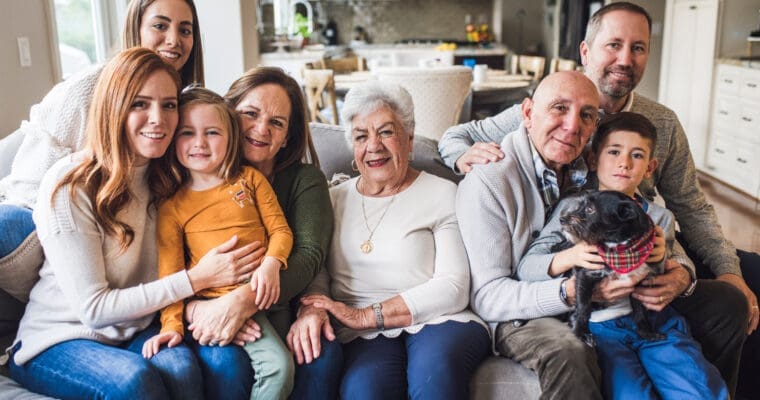Have you experienced a time when you felt isolated but craved social interaction? Have you ever been in a room full of people but still felt alone? Or have you ever felt distanced from your partner or as if they don’t want to spend time with you? If you have ever experienced any of the situations we just mentioned, you have likely experienced loneliness. Especially after being in a pandemic in the past three years, increasing numbers of people feel lonely (e.g Ernst, 2022). We hope through this blog, we can provide some comfort to those who are experiencing loneliness.
What is Loneliness?
We all have experienced loneliness at one point in our lives. Whether around friends, family, a significant other, or while attending a social outing. Most people refer to the general definition of loneliness, which is “a state of solitude or being alone,” while other definitions include stating that “loneliness is not necessarily about being alone, instead it is the perception of being alone and isolated that matters most” (Tiwari 2013). When we think about loneliness, we often assume that being alone is the same thing. Loneliness is seen more as the mental feeling of being alone rather than the physical aspect.
Being Alone Vs. Loneliness
When we think of being alone and lonely, we often assume they are synonymous, but being alone and loneliness are two different things. Although conceptually intermingled at times, loneliness and being alone are different. Loneliness is more dependent on the quality, rather than quantity, of social relationships and social activities (Langenkamp 2022). Loneliness is more of the feeling you get when you’re alone, whether with your family, friends, or in your romantic relationships.
Even in a romantic relationship such as marriage, partners can still feel lonely. When the feelings of love seem to change, or a partner feels less valued or special, it may make the other partner feel lonely and neglected (Rokach et al., 2022). This is very common in asymmetrical relationships, which is when one partner is more committed than another, yet the partner who is less committed has more control. Loneliness in relationships and personal life comes with mental and physical tolls. According to the U.S. Department of Health and Human Services, the physical health consequences of poor and insufficient connection include a 29% increased risk of heart disease, a 32% risk of stroke, and a 50% increased risk of developing dementia for older adults. The effects of loneliness on our mental and physical health shine a light on the importance of building strong and meaningful connections with others and shows how detrimental it is to our overall health and well-being. Having a strong and committed romantic relationship is just as essential and may lessen the feeling of loneliness in partners.
Attachment and Loneliness
Many studies have demonstrated a link between attachment and loneliness (Borawski et al., 2020). This means that the primary bond between caregivers and their children during childhood will play into how that child will create bonds with others. We have discussed different attachment styles on the blog, such as anxious attachment. But this topic is essential since the child-caregiver relationship is a prototype of how other relationships may be formed (Borawski et al., 2020).
In the case of secure attachment, a person develops high self-esteem and sees themselves as worthy of care and support from others. They are also more trusting and see others as more responsive, which means they are more open to social interactions. In contrast, someone with an anxious attachment style is linked to the fear of rejection and a negative internal model of the self (Borawski et al., 2020). With this attachment style, individuals aim at “winning others’ approval.” They will do anything to keep the conversation going, especially over text messaging, whether this is a romantic partner, a friend, or a family member. The thought of the conversation ending could lead a person with anxious attachment to thinking they did something wrong or that person on the other end of the conversation doesn’t like them when reality, everything was fine.
Those with an avoidant attachment will fear intimacy and being close to other people. This is where “keeping the distance” comes into play. People with avoidant attachment styles have a much harder time trusting others and keeping to themselves (Borawski et al. 2020). This could make them feel lonely since, as a child, they couldn’t trust their parents. This could lead them not to trust friends or significant others, leading to a lack of stable friendships. This could lead to isolating themselves and leaving them lonely since they don’t feel they have someone they can trust.
It is important to know that even if you struggle with anxious or avoidant attachment styles, there are ways to become secure or not feel lonely. Our blog has many resources, but we will discuss below how you can better cope with loneliness at the end of the blog.
How Gender Plays a Role in Coping Strategies
There are many ways to cope with loneliness, and even though we may not think that gender plays a role in these coping strategies, it plays a vital role. Some people may assume that men and women cope similarly regarding loneliness. Or even believe that men don’t feel lonely at all, which fills into the stereotypes that men don’t feel as much as women do. Men conform to the stereotype of not talking about how they feel because it’s learned through modeling and learning processes, but also because of the negative response’s men get when they express how they feel (Borys & Perlman 1985).
On the contrary, in a study done on how young people cope with loneliness, 50% of male participants suggested that peers listening and talking to someone feeling lonely would help them cope with their loneliness and while only 16.67% of female participants agreed (Verity et al., 2021). In contrast, 58% of female participants stated that someone feeling lonely should engage in coping strategies that involve being more sociable, while only 33% of men suggested the same. This shows us how men and women cope differently regarding loneliness (Verity et al., 2021). Men agree that having someone listen to them helps them cope with loneliness, while women state that being more sociable is a better way to cope.
COVID Effects on Loneliness
We all know the years of the pandemic were long and brutal. Having to stay at home and be socially distanced from everyone was extremely difficult and took a toll on our mental and physical health. According to a study conducted by the American Psychological Association on how COVID led to an increase of loneliness around the world, there was a small but significant increase in loneliness during the pandemic. About a 5 percent increase in the prevalence of loneliness across the studies was found (Ernst, 2022).
Throughout the pandemic, we were told to have no contact with anyone via face-to-face or closer than 6 feet. This wasn’t easy, especially if you don’t live or are married to your significant other. This could cause feelings of disconnection and make it hard for relationships to stay strong due to the lack of time spent with one another, leading to loneliness. During the COVID-19 pandemic, the loneliest group were those with no partner, while those who reported least lonely were married couples and those with children (Stone, 2020). This shows how people with no partner or close connection with others during the pandemic were most affected by loneliness. 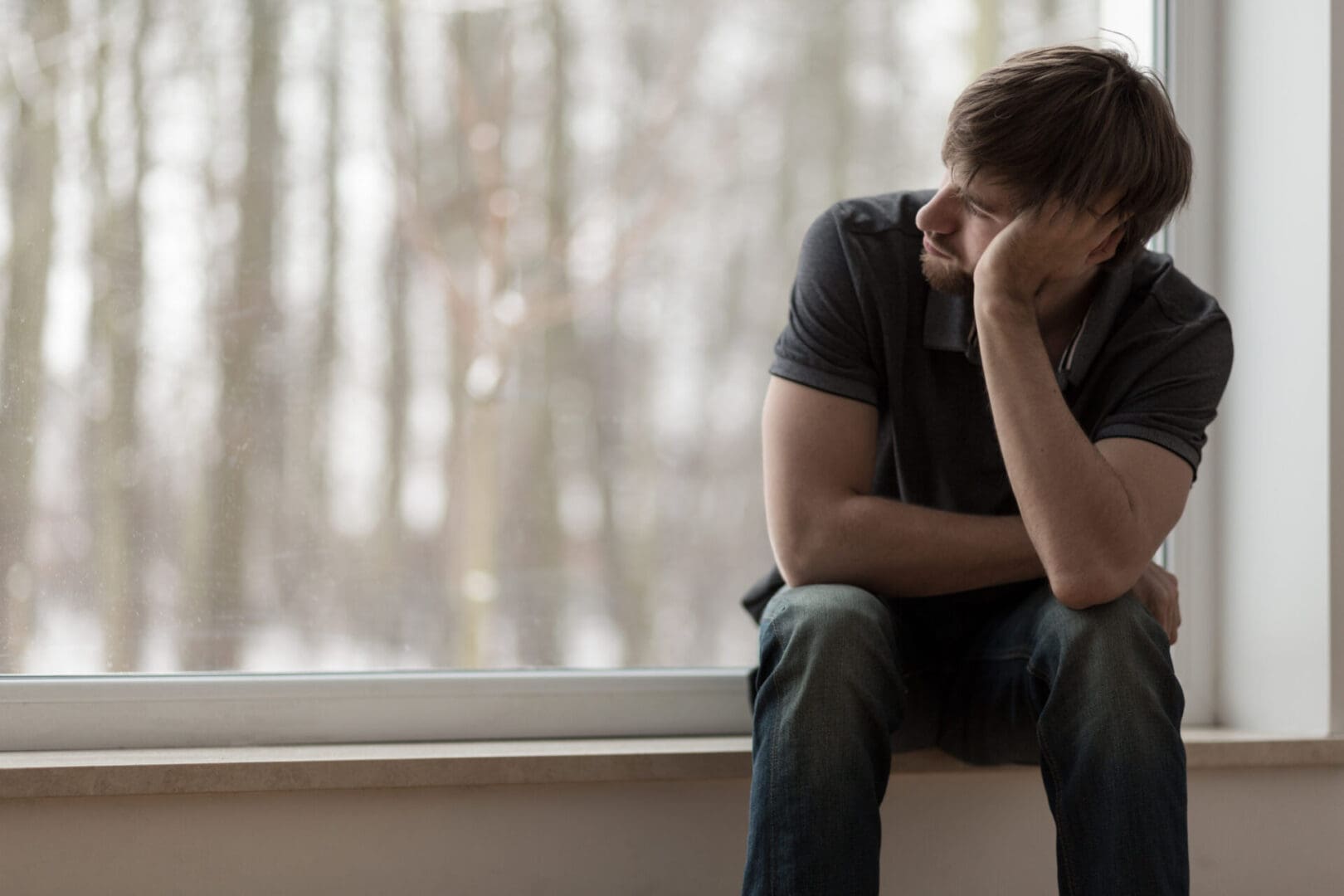
Personal Connections
It is more common than we think to feel excluded or lonely in our friendships. I (Pelin) have experienced loneliness in some of my past friendships. During my experience, I was friends with two other girls who happened to exclude me subtly and suddenly and always seemed to make plans without me but would act like nothing weird was happening. During these moments, I felt very excluded and felt “FOMO” or fear of missing out. Since they were my two best friends, I felt lonely and disconnected from them since they made plans without me so often. Connecting to that idea, studies show that higher friendship loneliness is related to lower friendship quality and vice versa (Spithoven et al., 2018). This makes sense since the quality of my friendship with those two girls wasn’t the best. It reflected on my emotions and made me feel lonelier.
During this time, I really had to think about how valued I was in the friendship. Even though I felt lonely and avoided in the friendship, it was still hard to cut it off. Friendships should add happiness and increase your sense of belonging and purpose. Friendships should not drain you and make you feel less worthy of having connections with others. If you are unhappy in a friendship or believe that you are being left out, it’s good to speak up. I would say the number one best thing you can do in any relationship, whether it is platonic or romantic, is to communicate and to communicate effectively. When you speak up about how you feel to those who are close to you, it could make your relationships closer and more meaningful.
I (Breanna) have experienced loneliness in the past with toxic relationships. It has been mentioned in research studies that there is more data about relational quality and psychosocial health in married couples, but less is known about dating couples. For example, when marital relationships are dissatisfying and distressing, these negative relational states cascade into psychosocial problems in the form of depression, anxiety, and loneliness (Flora and Segrin, 2000). It is also known that non-married, romantic relationship partners have fewer barriers to relational dissolution, in theory allowing them to escape those dissatisfying relationships that contribute to loneliness (Flora & Segrin, 2000). I have written about anxiety on the blog before and how that has impacted my past and current relationships. But thinking back, I also realized in those toxic relationships, I was quite lonely. Loneliness in relationships is not necessarily defined as your partner not physically being around you all the time, but when you feel your partner is not hearing you or making you feel valued, or that your partner is physically present but mentally absent, or when your presence or absence has little effect on your partner. Also, if you feel you cannot speak to your partner about your fears or thoughts, you may feel lonely in your relationship. In both relationships (which ended in November 2020 and May 2023), I realized I was depended on too much by my partner or controlled to the point that I could not be around anyone but my partner. This overall left me feeling lonely and feeling somewhat trapped.
In moments like these, where you are feeling lonely in a relationship, it is essential to take your time to reflect on how this relationship is making you feel. You must have a partner who feels like your best friend and teammate, but also, they can be independent of you, such as having their own hobbies (maybe a few you have in common), hanging out with their own friend group from time to time, and allowing you to spend time with your family. Dr. Scott Stanley talks about the term “We-ness.” Within We-ness, there are three identities (pictured below): me, you, and us. The painful reality is that one person’s identity is sometimes absorbed into the other, or two people/lives are connected. Still, there is no identity of “us” in the relationship yet. The key point of the term “we-ness” is that in a strongly committed relationship, there will be some identity of us, and it will have a boundary. (Stanley, 2021) In both my relationships, I found that I was sliding into my partner’s bubble, or my partner was sliding into my bubble, which left me feeling lonely and constrained by what they wanted me to do. This isn’t necessarily healthy; you should be able to depend on your partner but also have this sense of independence from them. When someone depends on you or controls you too much, it can make you feel constrained, leading to the overall feeling of loneliness in a relationship.
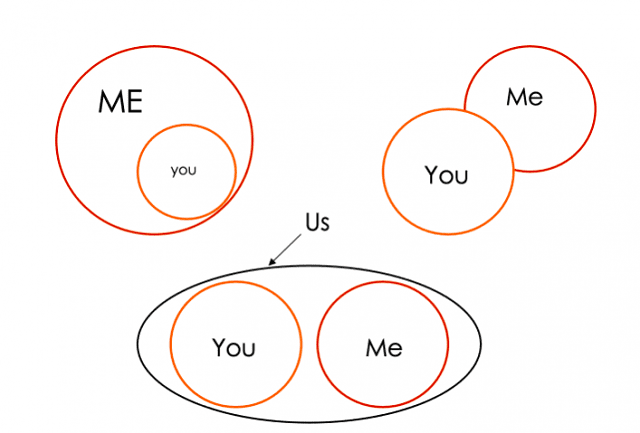
Loneliness and Commitment
Many posts on our blog talk about the importance of commitment in couple relationships, but we found it was essential to investigate the link between loneliness and commitment. Commitment is assumed to be one of the core dimensions underlying the benefits of romantic relationships. A study by Butcher et al. (2018) examined the differences between single, mingled, and partnered adults in terms of life satisfaction and loneliness. Mingle in the study was introduced for persons with an intimate relationship who do not define themselves as romantic partners. Through this study, we learned that relationship status plays an essential role in loneliness, especially in terms of lack of closeness and intimacy, which leads to greater perception of loneliness.
Overall, the results of this study showed that higher levels of commitment lead to lower emotional loneliness. Mingles do not fully and truly commit to their partner, so they do not experience a close and caring romantic relationship. This, in turn, leads to higher emotional loneliness. More committed types of relationships were associated with reduced loneliness, whereas decreases in commitment were linked to higher levels of emotional loneliness, indicating more committed individuals feeling less lonely (Butcher et al. 2018).
How to Cope with Loneliness
Now that we have spoken about loneliness and its role in our lives and relationships, it’s good to know how to cope with it and live healthier and happier lives. A study among first-year college students who experience loneliness showed positive and negative coping methods. A positive coping style is characterized by approach-oriented coping, seeking help, and positive cognition, is related to fewer emotional and behavior disorders, and may also positively predict individuals’ academic and personal/emotional adjustment. In contrast, a negative coping style, including avoidance and emotion-focused coping, has been identified as being related to higher levels of dysfunctional problems. (Quan et al. 2014).
The study showed that students who experienced loneliness were more likely to turn to negative coping methods. People who adopt a negative coping style will handle their encounters with stressful situations with strategies such as denying, yielding, and escaping. Individuals adopting a negative coping style also show a low level of efficacy in solving problems, and negative coping can even lead to more emotional and behavioral problems (Quan et al. 2014).
According to Harvard professor and psychiatrist Dr. Robert Waldinger, the best way to obtain happiness and feel less lonely is to build warm connections. He states that any relationship supports our well-being, whether it be romantically, platonically, or even starting a conversation with a stranger. In relationships, it is important to communicate and stay connected with your partner. The best way, we believe to battle loneliness, especially in relationships, is to tell your partner how you feel and come up with a solution. Even though it can be a difficult conversation, it could make a world of difference in how you connect with your partner.
Knowing what kind of attachment style you have can also help find answers on coping effectively with loneliness. For example, if you have more of an avoidant attachment style and you fear intimacy, an excellent place to start is to tell your partner that you may distance yourself away at times and that you may need more time to feel secure and trust your partner. If you have more of an anxious attachment style and fear that your partner may leave you, telling your partner you have this fear and being open and honest could be helpful. Coping with an anxious attachment style could be going to therapy, learning about yourself, and knowing and accepting if your partner were to leave that, it would be on them, not yourself. Coping with loneliness based on your attachment style could help overcome loneliness in your relationships.
As we discussed earlier in the blog, finding “we-ness” in your relationship is essential. Discuss with your partner how to maintain independence while in the relationship. Doing this lets you learn how to establish healthy boundaries within your relationship. We know it is vital that you are comfortable establishing certain boundaries with your partner, such as not living together until you are married, to maintain your sense of independence while in the relationship. It is easy when you are covered by “rose-colored glasses” to spend every waking moment with your partner. But it is important to keep your sense of individuality within the relationship to keep it healthy.
A lack of intimacy can cause the feeling of loneliness in couples. To create more intimacy in your relationship consider using words of appreciation and love, such as saying, “I appreciate you” and “I love you” to your partner. By showing appreciation for one another, and doing something special for one another, you can build more intimacy in your relationship. All these examples could be good ways to help eliminate the feeling of loneliness in your relationship. If you and your partner have tried the options we mentioned above, but things aren’t working out the way you hoped, another option could be couple’s therapy (click to locate a therapist trained to work with couples). Couple therapy can be a great way to address feelings of loneliness with your partner. Doing so can help your partner see how you feel disconnected from them by feeling lonely. A therapist can help you see each other’s sides and help you find healthy ways of coping.
As always, we want you to remember that loneliness and being alone are two different things. In a healthy relationship, you should feel loved and cared for, and your partner should be willing to work through issues of loneliness with you. If you feel you are alone, please know that you can receive the support and help that you need. Healthy relationships and having close connections to family, friends, and community can provide a buffer to feelings of loneliness. If you are feeling alone, and need support then please consider the resources below.
Additional Resources
If you or someone you love needs help with depression, suicide ideation, or loneliness here are some resources:
- Call the 988 Suicide & Crisis Lifeline (click the link).
- For help with finding a qualified therapist: Therapist Locator and Psychology Today
- CDC: Ways to Improve Social Connectedness
References
- Borawski, D. Wajs, T., Sojka, K., & Misztal, U. (2020). Interrelations between attachment styles, emotional contagion and loneliness. Journal of Family Issues. 1-19
- Borys, S. & Perlman, D. (1985). Gender Differences in Loneliness. Personality and Social Psychology Bulletin. (11) 1 63-74
- Butcher, A., Neubauer, A., Voss, A., Oetzbach, C. Together is Better: Higher Committed Relationships Increase Life Satisfaction and Reduce Loneliness. Journal of Happiness Studies (20) 2445–2469
- Ernst, M., Niederer, D., Werner, A. M., Czaja, S. J., Mikton, C., Ong, A., Rosen, T., Brahler, E., & Beutel, M. E. (2022). Loneliness before and during the covid-19 pandemic: A systematic review with meta-analysis. American Psychologist Association.
- Langenkamp, A. (2022). The influence of loneliness on perceived connectedness and trust beliefs- longitudinal evidence from the Netherlands. Journal of Social and Personal Relationships, 0, 1-25.
- Office of the Assistant Secretary for Health (OASH). (2023, May 3). New Surgeon General Advisory raises alarm about the devastating impact of the epidemic of loneliness and isolation in the United States. HHS.gov. https://www.hhs.gov/about/news/2023/05/03/new-surgeon-general-advisory-raises-alarm-about-devastating-impact-epidemic-loneliness-isolation-united-states.html
- Quan, L., Zhen, R., Yao, Benxian, Y.(2014) The Effects of Loneliness and Coping Style on Academic Adjustment Among College Freshman. Social Behavior and Personality, 42(6) 969-978
- Rokach, A., Sha’ked, A., & Ben-Artzi, E. (2022). Loneliness in intimate relationships scale (lirs): Development and validation. International Journal of Environmental Research and Public Health, 19(19), 12970. https://doi.org/10.3390/ijerph191912970
- Spithoven, A.W., Bastin, M., Bijttebier, P., & Goossens, L. (2018). Lonely Adolescents and Their Best Friend: An examination of loneliness and friendship quality in best friendship dyads. Journal of Child and Family Studies, 27(11), 3598-3605.
- Stanley, S. (2021, June 14). Me, You and Us: We-Ness and Couple Identity. Institute for Family Studies.
- Stone, L. (n.d.). Loneliness during the covid-19 pandemic. Institute for Family Studies. https://ifstudies.org/blog/loneliness-during-the-covid-19-pandemic
- Tiwari, S. (2013). Loneliness: A disease? Indian Journal of Psychiatry, 55(4), 320.
- Verity, L., Schellekens, T., Adam, T., Sillis, F., Majorano, M., Wigelsworth, M., Qualter, P., Peters, B., Stajniak, S., & Maes, M. (2021b). Tell me about loneliness: Interviews with young people about what loneliness is and how to cope with it. International Journal of Environmental Research and Public Health, 18(22), 11904. https://doi.org/10.3390/ijerph182211904
- Waldinger, R. (n.d.). Robert Waldinger: The secret to a happy life — lessons from 8 decades of research. Robert Waldinger: The secret to a happy life — lessons from 8 decades of research | TED Talk. https://www.ted.com/talks/robert_waldinger_the_secret_to_a_happy_life_lessons_from_8_decades_of_research/c?language=en
